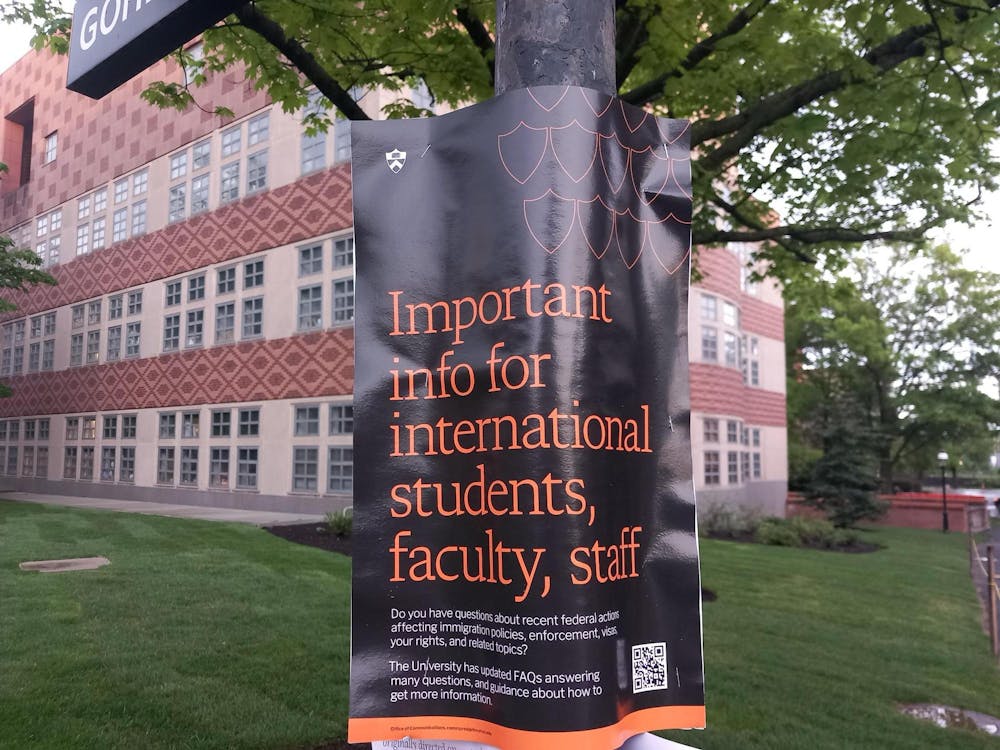As Immigration and Customs Enforcement (ICE) targets international students across the country through detainment and visa termination, the University has made a concerted effort to publicize its updated frequently asked questions (FAQs) website, “Immigration and Non-Citizen FAQs for Students, Faculty, and Staff.”
Notably, the recently expanded FAQ site is only accessible with a Princeton login. Nevertheless, the updated webpage has been publicized across campus via posters and tent cards, as well as online in a University-sponsored advertisement in The Daily Princetonian’s May 2 newsletter and on the University’s official Instagram account.
The page, previously expanded in February, provides guidance and resources on immigration-related concerns, visa statuses, and support services available to international and undocumented members of the University community. The site states that its content is “for informational purposes only” and “not intended as a substitute for consultation with an attorney about specific matters.”
The University’s updated guidance follows months of uncertainty on college campuses caused by ICE’s revocation and termination of at least 1,800 international students’ visas and legal statuses at 280 colleges and universities across the country, according to Inside Higher Ed. At Princeton, at least two individuals — one post-doctoral researcher and one graduate student — had their visas revoked in early April.
Ramped-up efforts to publicize these FAQs come after months of silence on the part of the University concerning the Trump administration’s efforts to target international students. The University has not publicly announced the number of students who have been targeted by ICE regarding their legal statuses, and it is the only Ivy League institution not to do so.
New guidance on the page, which is “under review for updates,” encourages international community members unable to reenter the United States to contact the Davis International Center during business hours and the Department of Public Safety (DPS) after hours. Those detained by ICE should also contact the Office of the General Counsel (OGC) and — if applicable — their own attorneys.
The updated page affirms that the University may provide financial and legal assistance to community members whose immigration statuses are revoked because of “controversial” teaching or scholarship or involvement in protests and demonstrations. It states that “removal actions against current students and employees who are not U.S. citizens premised on those individuals’ viewpoints threaten the University’s mission” and that the OGC will make case-by-case recommendations to the University on whether to take legal action in response.
The FAQs additionally advise faculty and staff members on how to respond to various forms of immigration enforcement, including searches and requests for information or documents. In general, the site instructs them to “politely inform the officer or agent that [they] are not authorized to provide such documents, records, or personal information” and contact the OGC and DPS.

Students are explicitly advised not to permit ICE employees into University buildings or consent to a search of their dorm rooms. The page includes a list of dozens of contacts for campus, legal, and advocacy-related resources, which, according to the site, “Students facing uncertainty as a result of their immigration status may find … particularly helpful.”
Nico David-Fox is an assistant News editor for the ‘Prince.’ He is from Washington, D.C. and typically covers University operations.
Please send any corrections to corrections[at]dailyprincetonian.com.









